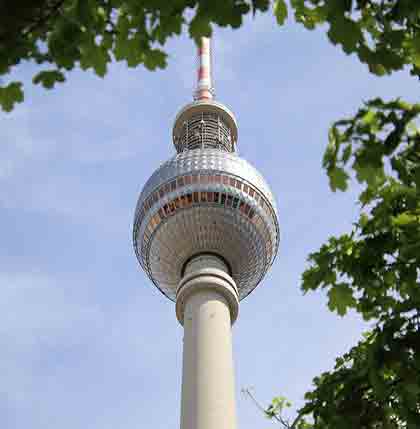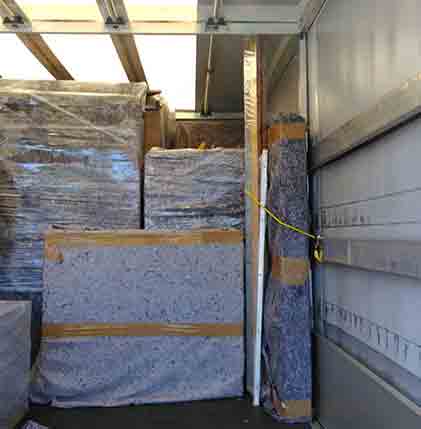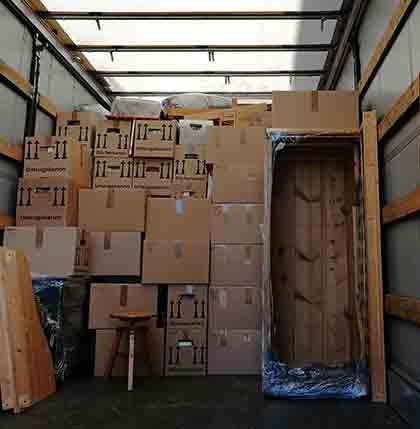Removals From UK to Berlin
Are you thinking of moving from the United Kingdom and Berlin? Searching for an experienced relocation company capable of fulfilling your needs? You couldn't find a better company. We have the experience and knowledge which will make your move as smooth, stress-free and safe as possible. Our company specialises in relocation services between the United Kingdom and Germany, so we know both countries perfectly. You can ask any question not only about relocation but anything else needed during your moving process. We're here to help.
We offer relocation and removals services to and from Berlin tailored to your needs, but it doesn't stop there: we also help relocate our clients to all of the Brandenburg regions. With our frequent, weekly journeys between Berlin and England, Scotland, Wales, Ireland, we are sure we can accommodate your move on the date and time frame you require. We are happy to help you all the way through your relocation not only until you pay the deposit, like some of our competitors. We are an honest, reliable, family-run business We care for every customer, and so each person gets 110% from us. That's our promise.
About Berlin
Berlin is Germany's capital and largest city, located in northeastern Germany on the Spree river, it's the centre of the Berlin-Brandenburg metropolitan region. With a rich history, great architecture, and a refreshing atmosphere, it's a great place to live. Berlin is a world city of culture, politics, media, and science. The home of renowned universities, research institutes, orchestras, museums, and celebrities, as well as a host of many sporting events.
New to Berlin?
Berlin is a cosmopolitan city with approx 50,000 ex-pats, so many people including Berliners speak a decent level of English. It is easy to get around the city as the transport system is good with a wide choice of S and U bahn, buses and trams.
For years we moved hundreds of customers between Berlin and the United Kingdom. We are certain there are questions which you wouldn't ask an ordinary relocation firm. We are different, we are more than happy to advise you on a wide range of issues regarding day to day living in Berlin or Brandenburg. Just contact us or fill in the free quote form. We'll get back to you as soon as possible.
Berlin in Numbers
A few facts about Berlin:
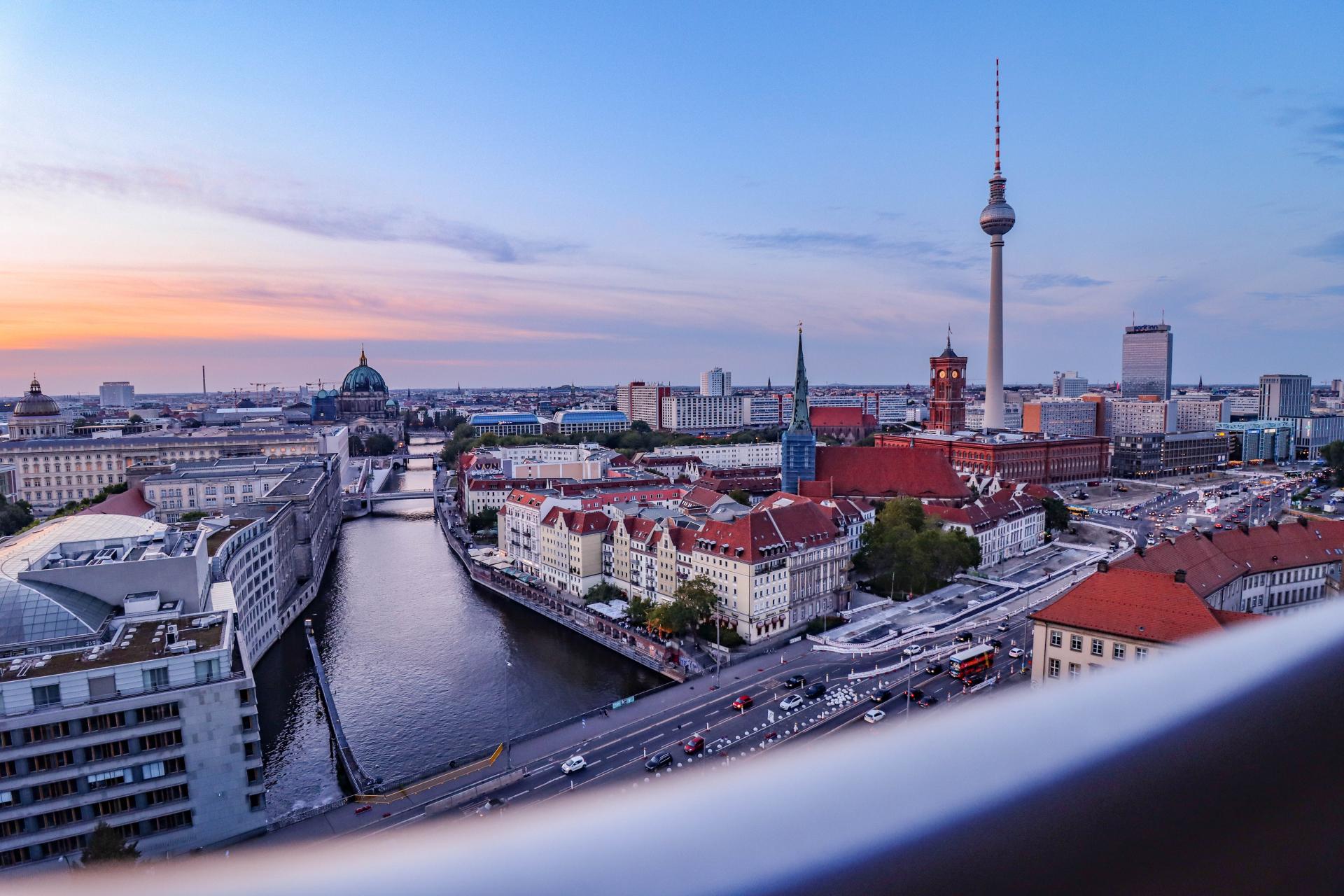
Moving to Berlin from UK - Where to Start?
It can be overwhelming to organise your relocation to a foreign country. As much as you may wish for a new adventure in your life, changes may cause you a lot of stress. New job, new place, new apartment, language, people, law. There’s a lot to prepare for. Where should you start?
Your relocation and stay will be easier, if you start by reading about German culture, the city, laws, regulations and ex-pat communities. Many people share honest accounts of their Berlin experience and you’ll also find many useful tips in this article.
You’ll soon discover that getting a job in Berlin should be your first step, as it determines whether or not you’ll obtain a residence permit. After a successful job hunt, things will become easier. You need to find an appropriate apartment, deal with a couple of formalities, find the best company to carry out your removal and plunge into a new chapter of your life.
London to Berlin Removals - The Best Service
No matter when you want to move, with us, you can start planning without any pre-written obligations. We know it takes time to find a company that cares about your belongings just as much as you would. We understand the stress moving involves, and we’re happy to take that off your hands. We deliver smooth and problems-free removals to Germany, as hundreds of satisfied customers can attest. After years of operating in this business, we’ve developed well-tested procedures, efficient organisation and unrivalled expertise. It doesn’t matter if you want us to take care of an apartment, house, office, shed, garage, cellar or attic removal.
Do not hesitate to contact us with any questions you have. Our consultants are always happy to answer all your questions. Every job comes with its unique challenges: it could be the timing, the size of your household or the fragile contents of your boxes. Our relocation assistance gives you a guarantee that your removal is successful.
Removals to Berlin - How We Operate
We have existed on the market for over 8 years and that enabled us to develop one of the most extensive contact networks in Germany and the UK. A successful move depends on knowledge of logistics and potential problems. Trust our relationships with shipment companies, local storage providers and truck drivers. We take responsibility for every stage of your shipment, cooperating only with the most reliable partners.
The key to our success is focusing on one area. Thanks to that we can accommodate very tight deadlines. Our services include house removals from any place in Great Britain to any part of Germany. Nearby locations in the Netherlands, Poland, Czechia, Luxembourg, Switzerland, Austria or Denmark are also possible upon request.
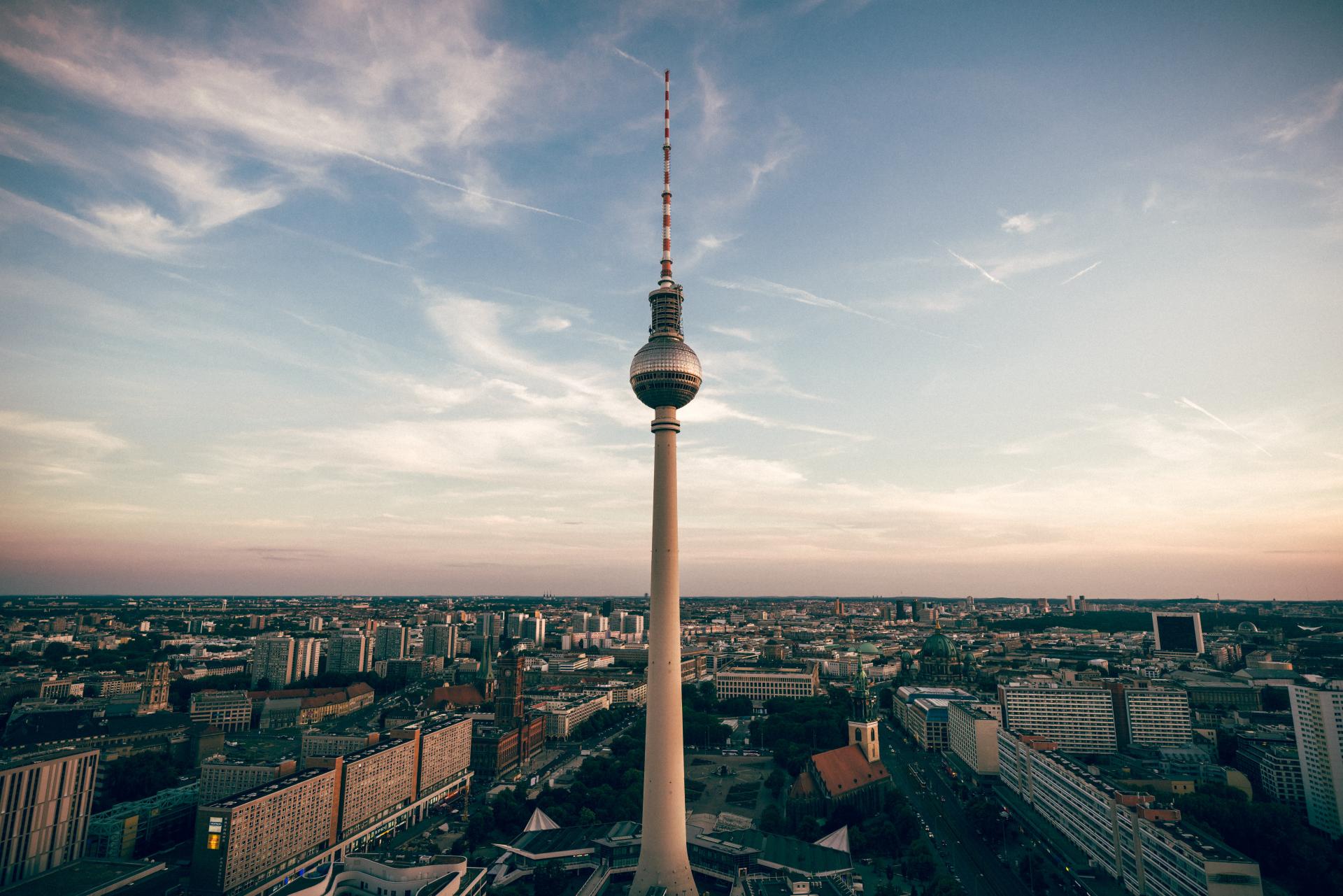
Contact Us
Get in touch and learn more about our great services:
- Included insurance package
- Damage protection
- Frequent shipments UK <=> Germany
- Specialised in removals to Germany
- Free quotes
- Machinery and equipment relocation
- International removals Berlin
- Business removals
- UK military personnel removals
- US Army personnel removals
- Packing service
The History of the City
Berlin is a city of fascinating and complex history. Have you ever heard that the city is older than Germany itself? It’s about 800 years old, founded by combining two powerful trade cities Cölln and Berlin, nicknamed “Doppelstadt” - “double city”. Of course, it’s not the same city as Cologne in the northern-eastern part of contemporary Germany, which most likely was founded by settlers from the West.
Berlin was the place to many major historical events:
- a religious revolution in the 16th century, when most of its population turned Lutheran;
- a battlefield of the Thirty Years Old War (1618-1638) when most of the city was destroyed and nearly half of its population killed;
- an unprecedented tolerant migration policy in 17th which made the city become multicultural, welcoming significant Jewish and French populations;
- A rapid economic growth in the 19th century, when Berlin became one of the leading powers in Europe
- A major city of the world’s cruellest political system in the 20th century, resulting in national trauma and an unprecedented destruction of the city
- The epicentre of the Cold War, a place where families are torn by the Berlin Wall (1961) into 2 separate political entities (FRD, Federal Republic of Germany and GDR, German Democratic Republic)
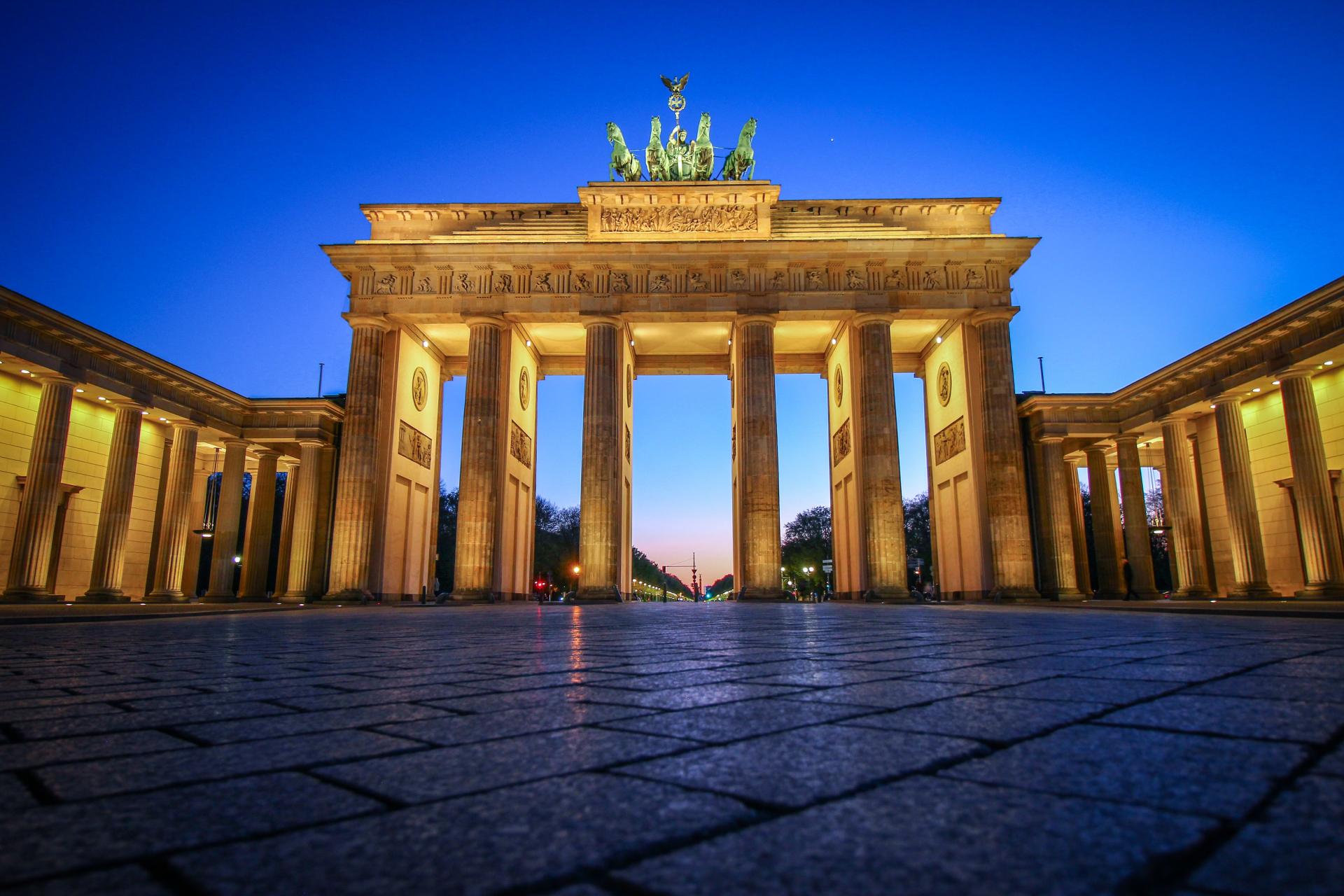
Berlin’s Population
The capital city of Germany is famous for its intercultural population. In the post-war reality, the population landscape was rapidly changing. In the 1950s people were emigrating from East Germany. Then, in the 1960s and 1970s, a substantial number of people were immigrating to West Germany seeking refuge and better life in the new reality.
The unification of both parts of Germany went along with a friendly immigration policy open for asylum seekers and guest workers. Today, Berlin has a population of 3.56 million people with the largest community of foreign-born nationals from Turkey, Poland, Italy, Serbia, Russia, Bulgaria, France and the United States.
If you enjoy English-speaking communities and a mix of many cultures, you’ll thrive in Berlin. It’s the city proud of its vibrant nationality mixture, openness and welcoming culture. The indisputable advantage is the presence of many English-speaking facilities and services.
Expats Opinions About Berlin
Luckily, you’ll find many honest accounts of how life is for an ex-pat in Berlin. Many people lead a digital nomad lifestyle, changing locations and being able to compare Berlin with other international cities. Most opinions are very favourable, international communities make it easy to blend in even without German and the quality of life Berlin offers is excellent.
The most common struggles ex-pats have are finding affordable accommodation and creating new social circles. Accommodation prices are not the highest compared to other large capitals. However, an increased influx of ex-pats is driving them up. When it comes to friends, if you plan to stay longer than a few years, you may find your friends leaving. Many people choose Berlin only as their temporary destination, flying off to new adventures after a few years. That doesn’t mean finding true friends is impossible.
Healthcare
You may be surprised how much Germans value preventive medical healthcare. Regulated check-ups, especially dental check-ups, blood tests or USG scans, are a widely-accepted obligation. Like any other European country, they put the rule that “prevention is better than care” in practice. Failing to show up for your scheduled appointments may result in higher costs of your health insurance, so as you can imagine, the rules are strictly followed.
If it comes to finance, if you’re a resident, paying health insurance is obligatory. To estimate its cost, you can assume that it’s 15.5% of your income, but 7.5% is covered by your employer. If your income is higher than €59,400 (about £52,093) per year (or you are self-employed), you can resign from compulsory healthcare and choose a private provider.
Moving to Germany after Brexit
If you’re planning to move to Berlin after 1 January 2021, new, post-Brexit rules will apply to you. UK citizens need to apply for a residence permit if they wish to stay longer than 90 days, work, study or freelance. In any case, when you move out from the UK, you need to inform your local council that deals with your tax, benefits and pension.
If you have already stayed in Germany before 1 January 2021, you will be eligible for a simplified procedure of obtaining a residence permit. Nevertheless, you must register your stay and request a residence document ‘Aufenthaltsdokument-GB’.
If you’re moving to Germany for the first time after Brexit, you can choose from two options:
- apply for a visa, work permit or a blue card online, before you travel.
- enter Germany without a visa and apply at your local Foreigner Authority ‘Ausländerbehörde’ office.
Which Option is Better?
That depends on how much time you have. It takes from 8-12 weeks to obtain a residence permit and without it, you can’t start working. If you decide to apply for it once you arrive, you must count on a prolonged break between your contracts.
Essential Documents
The process of application for a permanent residence in Germany is not terribly complicated. However, you need a job offer and proof of your qualifications to apply for a residence permit. If you additionally hold a university degree, you may wish to apply for a Blue Card, which is slightly easier to obtain. Some professions require an “official recognition” by German authority to show that your qualifications are similar in quality to German ones. It applies to some skilled workers like doctors, lawyers - look for an exhaustive list before deciding.

Your First Days in Germany
After you arrive, you’ll have a couple of formalities to deal with. You must register your new address within 14 days of moving into your new home. The name of the office is ‘Einwohnermeldeamt’. Consequently, you need to de-register at the end of your stay. This rule is well-respected by the German citizens, so we encourage you to take in the local mindset and fulfil this duty. Note, that it’s okay to stay up to 90 days in Germany without a permanent address. So, if you’re looking for your perfect home to rent or buy, you can take your time.
However, having a registered address is essential for obtaining a tax ID, which is essential for your employer, who needs to calculate your income tax. When you register your address, you’ll obtain your tax number within 2 weeks by post. You don’t officially need a tax ID to start working, but some employers require this anyway.
Opening up a German Bank Account
You’ll be surprised how many things can be only done via a German bank account: receiving your paycheck, paying for your health insurance and probably your rent. Most banks require a registration certificate (Meldebestätigung), but if that’s a problem for you, you can find ones that don’t.
Banks and Money
The Euro is the currency of Germany since 2002. Germany is famous for its love of cash and card payments are infamous for being somewhat problematic. This landscape is rapidly changing due to the 2020/2021 pandemic. However, you must remember that not all places accept card payments and some places accept only German debit cards and credit cards. For this reason, it’s wise to always have some cash and a card at one of the local banks: Deutsche Bank AG, DZ Bank AG, KfW Group, Commerzbank, HypoVereinsbank, Landesbank Baden-Württemberg.
Plan Your Budget
As you’re most likely aware, when relocating your household, you will always incur additional costs. Apart from house removal service and transportation costs, be prepared for paying: a 3-month deposit for your apartment (if you rent). Typically, you need to pay ⅓ of a deposit before you move in, as a booking fee, then the total on the day you move in, plus 1st-month rent. Make sure you have enough savings to cover your expenses till your first paycheck,
which will arrive about a month after you start working.
Note, that in Germany, relocation costs can be reimbursed by your employer free of tax, or if your employer doesn’t offer that, you are entitled to deduct additional costs in your income tax return. Keep all your receipts for plane/train tickets, cost of accommodation, transport of household goods, food expenses during travel and anything that is related to your relocation.
Local and International Cuisine
It’s hard to say what Berlin's food culture is. It’s a hub of international food and that’s what many ex-pats appreciate the most. You can indulge in top-quality meals from almost anywhere in the world. The most popular and renowned cuisines are Turkish, Lebanese, Italian, Vietnamese, Sudanese, Arabic or Polish. From German cuisine, you must try fast-food currywurst, a sausage in curry sauce, pretzels, a type of sweet bread pastry, locally crafted beer, excellent bread, delicious meats like Rouladen and Schnitzels, or one-pot meals “Eintopf”.
Nature
In a huge metropolis, nature and parks are too often scarce. You’re in luck since that isn’t true for Berlin, which is famous for large and cool green areas. You'll soon realise how much you appreciate the possibility of having a stroll in a pleasant, green neighbourhood.
Start your park tour with Tempelhofer Feld, the coolest and largest of them all. It’s a closed-in 2008 airport adapted to serve as public greenspace. It has 890 acres (360 hectares) of green areas alongside roller-blading, bike, skating paths and fun art. Fun fact: Berliners decided in a referendum that this area should stay a public space instead of a commerce or housing zone.
Other green areas include Tiergarten, a park in the most central location, Schlosspark Charlottenburg, well-trimmed greenery surrounding the Charlottenburg Palace, Görlitzer Park, a famous spot for hip hop music, sunset yoga, or picnics enjoyed by Turkish and Arab families, Treptower Park offers waterside strolls and moments of reflection close to the Soviet War Memorial. And that’s not all, you can be sure, you’ll discover an amazing park close to your home.
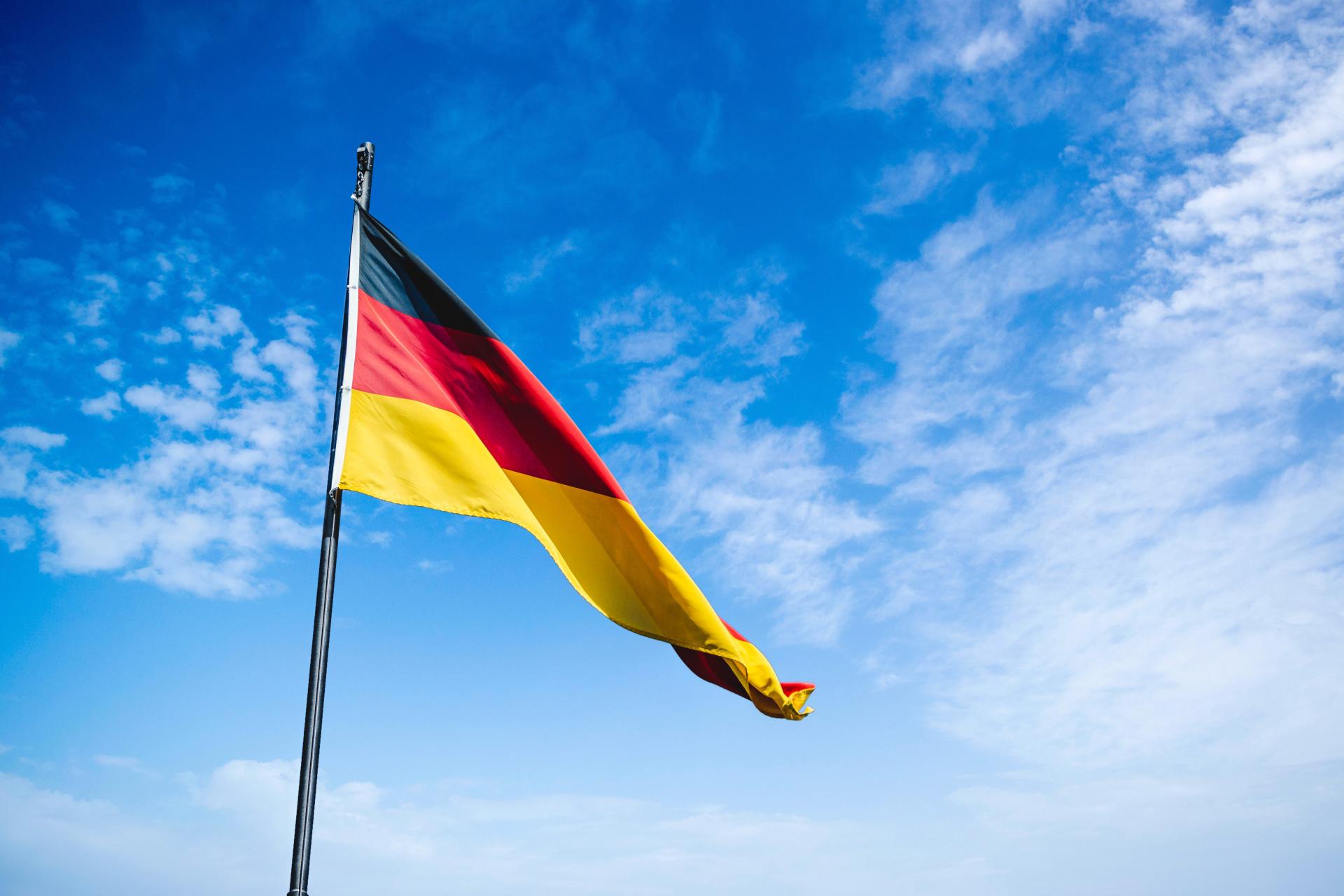
Language
So, should you learn German if you plan to live in Berlin? Most guides will advise you to do so and they have a point. However, it is widely popular for immigrants in Berlin to function without a language. It truly is a multinational city and you can easily get by with the knowledge of English only. It’s quite common for Germans to switch to English once they realise German is not your first language. But. The German language is unique and there’s no better way to learn about the culture and German mindset than learning the language.
Fun facts you should know about German:
- it’s rich in unique words impossible to translate, for example, "fremdschämen" (shame felt on another person’s behalf) or "Fernweh" (having the travel bug, lusting after adventure)
- it’s full of compound nouns. Is it why it seems so orderly and logical? For example, das Faultier (direct translation: lazy + animal, meaning: a sloth) or der Regenschirm (direct translation: rain shield, meaning: an umbrella)
- words can get really long, which you’ll likely experience dealing with formalities in German. The longest German word is: “Grundstücksverkehrsgenehmigungszuständigkeitsübertragungsverordnung” (regulation on the delegation of authority concerning land conveyance permissions)
- it uses a Latin alphabet with a twist - an additional German consonant "Eszett", the ß, which essentially is a double-s. Is this a good reason enough to install an additional keyboard on your mobile/laptop?
- German is widely spoken. It’s an official language in Germany, Austria and Liechtenstein, and one of the official ones in Switzerland and Luxembourg. But, it also has a growing number of non-native speakers, estimated at around 75-100 million.
German traditions
Berlin is an exciting place to live in. Not only for its multicultural mix but also for local, German traditions. You’ll get a chance to experience first-hand Oktoberfest with plentiful craft beer. NYE fireworks may be nothing like what you’ve seen before, as Germans hold on strongly to this tradition and take pride in their fireworks shows. You may discover that your German friends take partying as a serious business, throwing birthday parties with revelry (“Geburtstag reinfeiren”), travelling to celebrate a carnival dressing up in unimaginable costumes (the main festivities are in Cologne, Mainz, and Düsseldorf) or participating in “Tanz in den Mai” - “dancing into May”, just another opportunity to party before the public holiday on the 1st of May.
Public holidays in Germany
Public holidays and days off are an interesting measure of how work-oriented a country is. The numbers range from 2 paid days off in Norway to 27 days in Iran. Most European countries enjoy between 10 and 14 days off. How is it in Germany? Germany has 9 national days off and several local festivities, depending on the region. You can expect days off around Christmas, Easter, New Year’s Eve. Additionally, you’ll get 2 holidays in May: Labour Day and Ascension Day (a regional holiday). The newest holiday is a Day of German Unity (3rd October). In total, in Berlin, you’ll enjoy 10 paid public holidays.
Free Quote
Fill the form
As there are many factors affecting final valuation, please take some time to fill out this form, so that we can provide you with an accurate quote.


